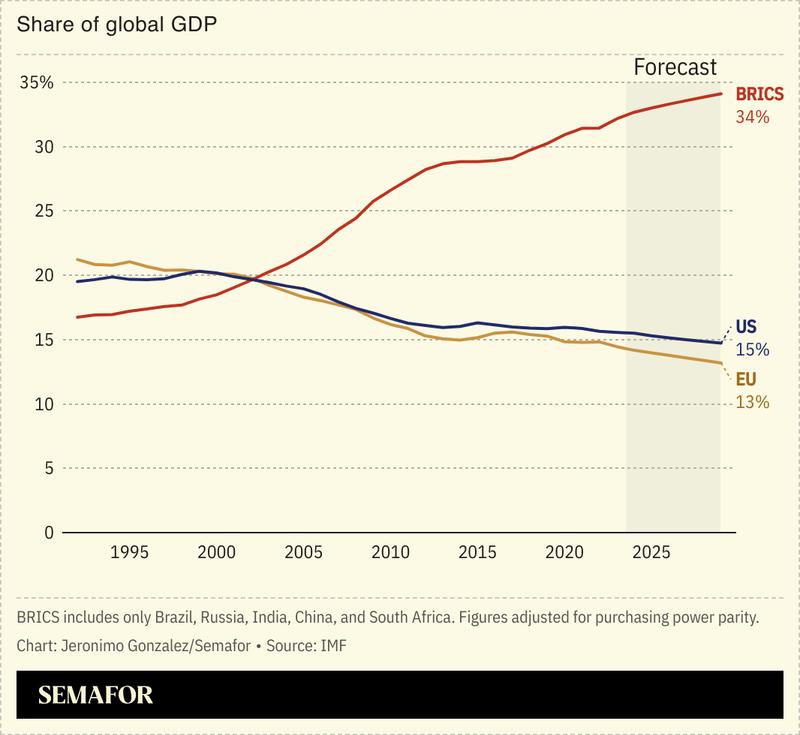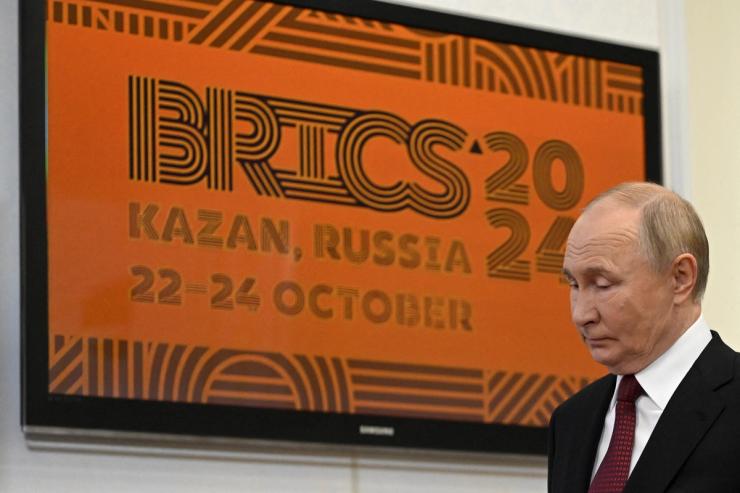The News
Russian President Vladimir Putin opened the BRICS summit Tuesday, a meeting of mostly developing nations that reflects both Russia’s diplomatic heft as well as the limits of Putin’s power.
The summit includes the group’s original members — Brazil, Russia, India, China, and South Africa — as well as recent additions Egypt, Ethiopia, Iran, and the UAE, making it the largest international meeting inside Russia since the 2022 invasion of Ukraine.
Discussions at the summit are expected to focus on undermining the dominance of the US dollar in the global financial system, and leveraging what Russian analysts call the “world majority” to promote Moscow’s interests.
Yet, Putin’s power is finite: Moscow is increasingly deferential to Beijing on the world stage, and Putin has said he will not attend November’s G20 talks in Brazil, which are set to include China.

SIGNALS
Putin is far from isolated…
The 32 countries participating in the BRICS summit demonstrate that Russian President Vladimir Putin is not a global pariah, despite the West’s efforts to isolate him, the BBC noted. Moscow is “seizing its opportunity to cast Putin as standing up to the West in attempting to reshape the global order,” a message that resonates with a number of other BRICS countries. The group is a “rubric for rebellion,” Foreign Policy noted: “Outside of Washington, and the G-7 and the European Union, it is hard to appreciate just how much resentment there is of Western hypocrisy and hegemony, all mortar helping to bond the loose membership of BRICS.”
… But BRICS countries also have divergent agendas
Putin’s “world majority” rhetoric may not match up with the variety of interests among BRICS countries, CNN noted, differences that could limit “their ability to send a unified message — especially the kind Putin may desire.” The recently expanded group is “not a coherent geopolitical bloc, but rather a collection of individual countries with different interests and goals,” Neue Zürcher Zeitung noted, and growing geopolitical tensions could affect the group’s future direction. In this case, the gathering will likely serve as a temperature check, Politico wrote. “The intrigue is who will appear at the end of the day in the court of public opinion as the real host, the leader of BRICS,” a China expert told the outlet.
China’s economic dominance creates tension
Economically, China remains the dominant force in BRICS, The New York Times noted: Moscow is increasingly dependent on Beijing to continue financing its war efforts, and China also makes up over half of the economic output of the whole group. “Countries are looking for economic benefits from this association,” an analyst said. “That’s what makes BRICS so attractive. And China being the largest economy in BRICS makes it a magnet.” But politically, the importance of China has created tension, especially as some members, like India, have grown closer to the West in recent years: New Delhi worries BRICS will turn into “an anti-US body dominated by China and Russia,” Bloomberg reported, citing anonymous sources — an agenda that most member states disagree with, Neue Zürcher Zeitung added.



